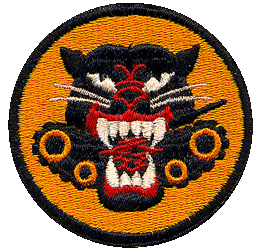 Joseph Juno
Joseph Juno
Biography: Joseph Juno was born on December 31, 1906, in Albia, Hynes County, Iowa. He was the one of five sons and two daughters born to Michael Juno and Susannah “Susie” Strich, who had both immigrated from Austria-Hungary in the 1890’s.
Joseph attended local schools through the grammar level and at some point, moved to Detroit, Michigan, where he worked at the Detroit Transmission Company. His enlistment record indicates that he was employed in the building of aircraft.
Service Time: Joseph entered the service on July 15, 1942, at Traverse City, MI. After his initial training, he was assigned to Company B of the 703rd Tank Destroyer Battalion and trained with them at military facilities within the U.S., including Camp Hood, Texas, the Desert Training Center, Indio, California and Fort Pickett, Virginia.
The unit traveled to Indiantown Gap Military Reservation in Pennsylvania for training and final preparations before shipping overseas. They then boarded ships and left the New York port on September 4, 1943, arriving in England on the 15th. The unit spent 10 months training there before being loaded on transports and making their way across the English Channel, landing in Normandy, France, on July 1, 1944.
The 703rd first saw action near Hautes Vents on July 13th, participating in the Cobra breakout at the end of the month. They were held in reserve during the Mortain battle in August and on the 14th, three companies, A, B & C, remained under Division control, with Company A assigned to CCA (Combat Command A) in anti-tank protection. Company B was assigned to Task Force Hogan under the command of Lt. Col. Samuel “Sam” Hogan to secure the road nets at Ranes and Company C in support of CCB (Combat Command B) in anti-tank protection. Both A and B Companies suffered casualties on the 14th.
Unit reports indicate that on the 15th, 2nd Platoon of Company B, destroyed (2) German Mark V Panther tanks. Details of the action are limited but Corporal Joseph Juno, who was the gunner on one of the platoon’s TDs, exited his unit to assist the enemy casualties and was killed by exploding shells from one of the knocked out tanks. Although reports say it occurred on the 15th, Cpl. Juno was identified as being killed on the 16th, so the action must have extended into the next day. A December 1990 newsletter from the 703rd Association provides a bit of additional information, identifying that the platoon was functioning as a road block when they the encountered the Panther tank which was destroyed at point blank range
 Joseph was posthumously awarded the Silver Star and the Purple Heart with Oak Leaf Cluster, signifying his death and a prior injury. He would have been buried temporarily and then reinterred in the Brittany American Cemetery and Memorial Saint-James, Department de la Manche, Basse-Normandie, France, Plot E, Row 4, Grave 1.
Joseph was posthumously awarded the Silver Star and the Purple Heart with Oak Leaf Cluster, signifying his death and a prior injury. He would have been buried temporarily and then reinterred in the Brittany American Cemetery and Memorial Saint-James, Department de la Manche, Basse-Normandie, France, Plot E, Row 4, Grave 1.
I want to thank Corporal Joseph Juno for his service and ultimate sacrifice for his country.
